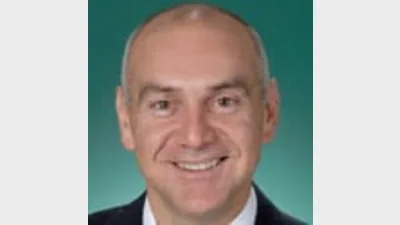No hiding from Ripoll changes



|
|
The chairman of the Ripoll Inquiry, Bernie Ripoll, has indicated volume rebates paid from product manufacturers to dealer groups are encompassed in the recommendations made by the committee — including the recommendation to cease payments from product manufacturers to advisers.
In the discussion about remuneration-related conflicts of interest faced by advisers, there has been relative silence on the high-level remuneration relationships between Australian financial services licensees and funds management companies.
Argyle Lawyers partner June Smith said conflicts of interest within the financial advice industry would not be resolved “unless the commercial relationships are also looked at”. Smith said it “didn’t come across in the recommendations that those commercial interests were in their sights”.
In response, Ripoll told Money Management the recommendations made in the final report were “all encompassing”. This includes the introduction of an explicit fiduciary duty definition in the Corporations Act, and the cessation of payments from product manufacturers to advisers.
“We examined a whole range of issues and relationships and the interaction between product manufacturers, dealer groups, advisers and clients,” Ripoll said.
He said the purpose of recommending an explicit fiduciary duty in the Corporations Act was to create behavioural change, and that the recommendations encompassed the entire advice chain.
“It intends to make it so that every individual, whether it’s a licensee or a representative, accept that they do have an explicit fiduciary responsibility,” Ripoll said.
Financial adviser Bruce Baker argued fiduciary obligations need to be applied to the directors of an Australian Financial Services Licence (AFSL), who are “far more important in influencing advice than the advisers themselves”.
Referring to lucrative volume payments, Baker said: “The directors of the AFSL create carrots and sticks to mould and influence the advice of their advisers, to ensure that advisers provide recommendations consistent with the needs of the AFSL.”
Industry consultant Tom Collins agreed advisers are “at the end of the food chain — what they recommend and sell is decided much higher up”; while Smith said “the commercial payments and transactions currently being arranged between dealer groups and product issuers and platforms could create conflicts of interest associated with advice” — often in the creation of the group’s broader advisory model.
Recommended for you
Unregistered managed investment scheme operator Chris Marco has been sentenced after being found guilty of 43 fraud charges, receiving the highest sentence imposed by an Australian court regarding an ASIC criminal investigation.
ASIC has cancelled the AFSL of Sydney-based Arrumar Private after it failed to comply with the conditions of its licence.
Two investment advisory research houses have announced a merger to form a combined entity under the name Delta Portfolios.
The top five licensees are demonstrating a “strong recovery” from losses in the first half of the year, and the gap is narrowing between their respective adviser numbers.











